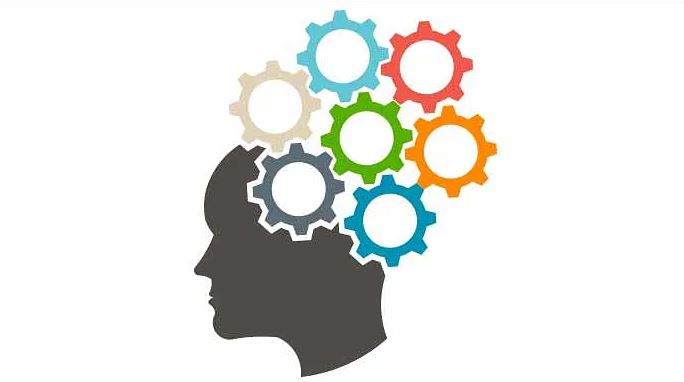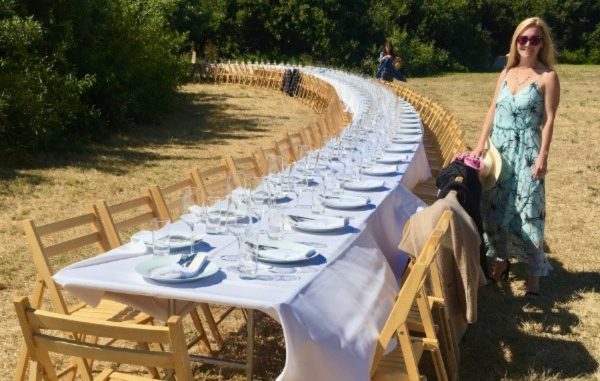Everyone is demanding of our resources. They want to take our currency.
Our most precious resources are attention, time and energy in that order. Interestingly, money is not one of them. Simply put, your money can travel and come back to you. But time, attention and energy – once spent cannot be recovered.
The most important fact to understand is that it all begins and ends in the mind.
If you want to survive in the modern world and excel in any capacity you have to learn to control these resources. It all begins with the conscious mindfulness that we can learn to possess. This tradition of expanding our capacity for awareness and concentration has been a key part of the Eastern spiritual and meditative disciplines.
Let’s take the case of learning attentiveness from the Chinese tradition. The most traditional form of Chinese painting, the Shan shui doesn’t have any fixed center or main object. When Chinese painters work on Shan shui paintings, they do not try to present an image of what they have seen in the nature, but what they have thought about nature. No one cares whether the painted colours and shapes look like the real object or not. Shan shui painting is not an open window for the viewer’s eye, it is an object for the viewer’s mind. A Shan shui painting is more like a vehicle of philosophy.”
Let’s think of Eastern martial arts. Here, mindfulness is the first defence. One is not fighting the enemy body but the enemy mind. The more total your understanding of the enemy mind is, the easier it will be to know what the body will do.
Miyamoto Musashi was a Japanese swordsman, philosopher, strategist, writer who lived in the 16th century. He was the founder of the Niten Ichi-ryū school or Nito Ichi-ryū style of swordsmanship, and in his final years authored The Book of Five Rings and Dokkōdō (The Path of Aloneness).
Musashi spent many years studying Buddhism and swordsmanship. He was an accomplished artist, sculptor, and calligrapher.
Two of his famous sayings give us a lesson in strategic mindfulness
“Study strategy over the years and achieve the spirit of the warrior. Today is victory over yourself of yesterday”
He often gave the example of a carpenter who knew the final object before he applied the saw to the trunk of a tree. Every action thereafter was to get closer to that final outcome.
About the near and distant gaze and accompanying evaluations he said: “Perception is strong and sight weak. In strategy it is important to see distant things as if they were close and to take a distanced view of close things.”
This implies that things which appear remote and insignificant at present need to be seen in future terms whilst things which seem fearsome and large in the future may have a seed being planted in the present. Being mindful means having that sense of perception as well as proportion.
The felt need for mindful poise is even more acute now than ever because man’s cognitive apparatus is not made for multitasking
Multitasking can result in wasted time and energy due to human context switching. Most errors are directly the result of insufficient attention. If one becomes proficient at two tasks it is possible to rapidly shift ones attention between the tasks and perform the tasks proficiently.
So, when you talk in a phone while eating and sitting in front of a TV you are loading your senses and rapidly changing context between a minimum of three theatres of action. Plus some portion of your sensory faculties are still reserved for external and unknown stimulus. Multiply this load by a million or more encounter you’ll have in a day and you see how attention is compromised. With this comes stress hormones, a sapping of energy and waste of time.
That’s why the three precious currencies are linked. If you master attention, you will conserve energy and time as well.
I have studied several meditative techniques and practices and have developed a version of auto enabled meditative calm and supplement this with access bar modalities.
Few of us ever live in the present. We are forever anticipating what is to come or remembering what has gone. Give your attention to the experience of seeing rather than to the object seen and you will find yourself everywhere.
Mindfulness is to see with not only the eye but with your entire self. Your breathing, all sensory perceptions and the entire active mind has to be intently focused and controlled. Access bars help you enable this with the help of an expert.
There is growing realisation that there is an even more brilliant ‘science of the brain’ in which energy pathways are tapped and channelled for healing. It’s called access consciousness. The most important modality is ‘The Bars’ referring to 32 bars of energy that run through and around your head that connect to different aspects of your life. These points are touched when using this modality and since each of these points stores the energy of all the thoughts, ideas, attitudes, decisions, and beliefs that you have ever had throughout your life, its revitalisation leads to healing and all around wellbeing.
A Bars session helps you release pent up energy, unblocking your conscious and allowing new possibilities into your life through the touch of a trained professional. Its benefits include quicker recovery times with any old or new injuries, surgeries, or diseases and vast improvements in your health both physically and emotionally besides a state of heightened focus and mindfulness.
Just as music needs no language and penetrates the soul, humans can also differentiate intuitively between noise and music. The way tone, tune and rhythm turns noise into music, a practitioner working on your energy channels can also cause resonance, harmony and amplification that energises and heals you.
It is known that numerous issues of a psychological, psychosomatic or auto immune nature are triggered by the mind. If the mind is deeply focused on anything then one can be assured of comprehension, alertness and internalisation.
In all aspects of the experiential world, including activation, sport, retail, media and gaming, attention and mindfulness is the key.
Search for it. Search for your Self. You shall find.
Source: ‘In the experiential world, attention & mindfulness is the key’













